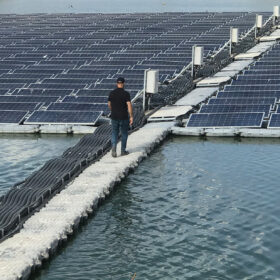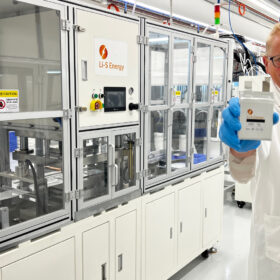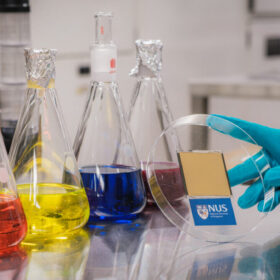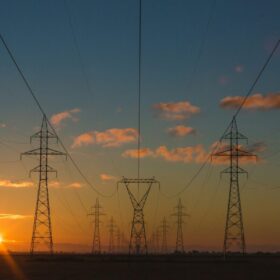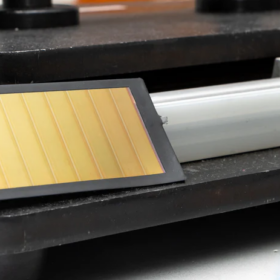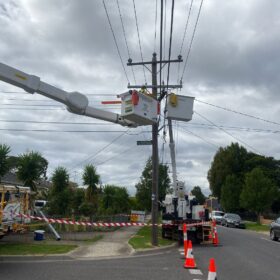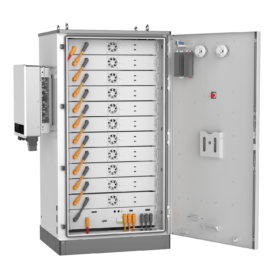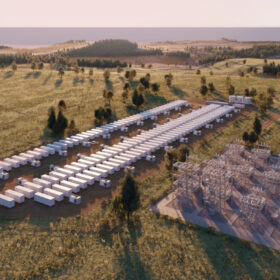Project to test floating PV on farm dams to save water, generate electricity
The feasibility of deploying floating solar systems on farm-based water storages to optimise water retention and generate renewable energy that could serve as an alternative income stream for landholders will be investigated as part of an Australian-first research project.
Australian battery maker targets military-related applications
Queensland battery technology developer Li-S Energy has signed a supply and testing agreement with an unnamed defence technology company, targeting integration of lithium-sulfur battery solutions into advanced military and security systems.
SERIS achieves world record efficiency of 26.7% for perovskite-organic tandem solar cell
The tandem device is based on a bottom organic cell that can achieve a power conversion efficiency of 17.9% and a high short-circuit current density of 28.60 mA cm2. Furthermore, it uses a top perovskite solar cell with an open-circuit voltage of 1.37 V and a fill factor of 85.5%.
Policy shifts needed to unlock existing transmission network capacity
Neara co-founder Jack Curtis says the opportunity to boost capacity of existing transmission networks is possible with smarter grid solutions and derisk reliance on new transmission projects facing potential delays.
The best tilt angle to improve PV system performance on low-income housing
Researchers have demonstrated that the theoretical optimal tilt for rooftop solar energy production in low-cost buildings in Nigeria is approximately 5.67°. Their modeling suggests to adopt south-facing roofs for PV generation in the southern hemisphere.
Neighbourly nod to transmission line impact sets social licence precedent
Victorian network company AusNet has launched a new program that entitles landowners of properties neighbouring the proposed Western Renewable Link transmission project to one-off payments of $20,000 or $40,000.
JinkoSolar achieves world record efficiency of 27.02% for TOPCon solar cell
The Chinese manufacturer said the result was certified by China’s National Photovoltaic Industry Measurement and Testing Center (NPVM).
Australian cell manufacturer launches first module series
Australian solar cell developer Halocell Energy has launched its first perovskite-based product line with the flexible Ambient Modules series purpose-built for low-light conditions.
Smart data unlocks solutions for network challenges
As Australia’s distribution network service providers grapple with challenges sparked by the rise of distributed energy resources, EA Technology says leveraging insights from grid-edge intelligence can unleash the full potential of their networks.
GoodWe releases 112 kWh storage system for C&I solar
GoodWe has launched a 112 kWh battery energy storage system for commercial and industrial solar projects, featuring 96% round-trip efficiency and a 6,000-cycle lifespan. The system allows parallel connection for up to 450 kWh of total capacity.
